This article was contributed by Jeremy Lim.
In the bustling real estate landscape of Singapore, there exists a hidden gem that often goes unnoticed by some investors and buyers: the conservation shophouse market.
Despite its allure and potential, this niche sector is often overshadowed by more mainstream property options. However, for those in the know, conservation shophouses represent a lucrative investment opportunity unlike any other.
Today, we dive into this fascinating realm with insights from Jeremy Lim, a five-time million-dollar sales producer and renowned expert in Singapore’s real estate scene.
Conservation shophouses and their lucrative demand over the past few years
Over the past few years, private wealth buyers have increasingly turned their attention towards shophouses as a means of capital preservation, leading to a surge in shophouse-related transactions.
In the first six months of 2021 alone, a total of 75 shophouse transactions amounting to S$711.6 million were recorded in Singapore. This heightened interest can be attributed to various factors, including the implementation of increased Additional Buyer’s Stamp Duty (ABSD) rates for the residential sector in April 2023.
However, despite the initial momentum, the market witnessed a slowdown in Q4 2023 due to a high-profile money laundering case involving shophouses.
This led to the lowest quarterly sales since 2010, with only 26 shophouse transactions amounting to S$406 million. Huttons reported a 50% decrease in shophouse transactions, with only 16 deals in the last quarter, marking the lowest level of activity since the third quarter of 1998.
Despite this setback, shophouses remain one of the top investment asset classes, offering potential for capital appreciation and serving as a hedge against inflation.
Over the next couple of years, shophouses in city fringe locations are expected to attract more investor interest in 2024. With a promising economic outlook and anticipated higher tourist arrivals, there may be increased leasing demand for shophouses in the coming year.
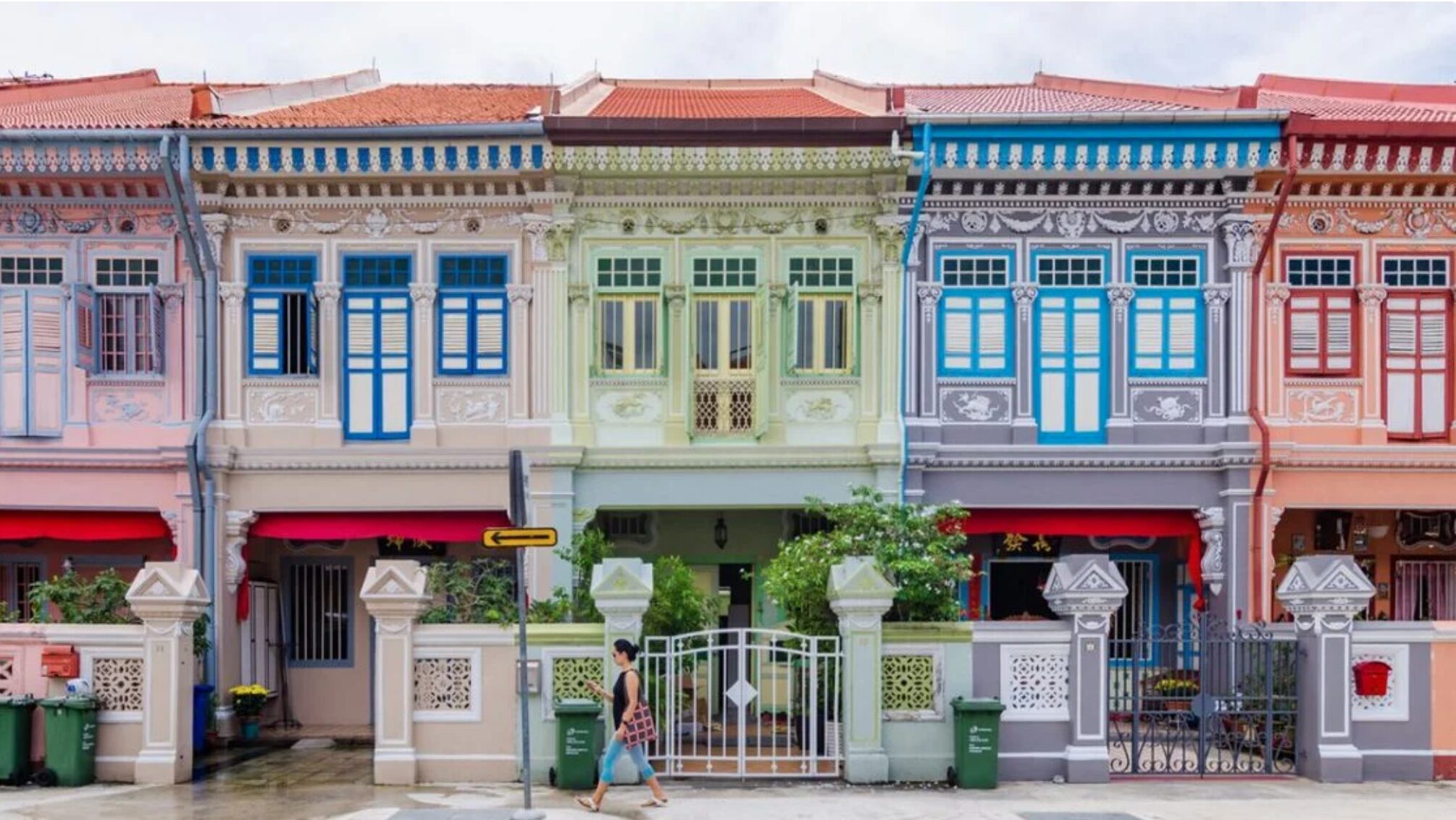
Jeremy Lim – The expert in Singapore’s conservation shophouses
Jeremy Lim’s illustrious career spans 17 years in the real estate industry, during which he has achieved remarkable success as a top producer in Huttons, one of Singapore’s leading real estate agencies.
With a track record of success that includes being a five-time million-dollar sales producer and a two-time Huttons Champion Producer, Lim’s expertise is highly sought after in the industry. Throughout his career, he has consistently ranked among the top 20 producers at Huttons, demonstrating his dedication to excellence and unparalleled knowledge of the market.
Lim’s expertise extends to the niche market of conservation shophouses, an area that has seen significant growth in recent years. His extensive portfolio includes transactions of iconic buildings in prime districts such as Telok Ayer, Amoy, and Club Street, showcasing his deep understanding of the market and commitment to delivering exceptional results for his clients.
This has garnered Lim a reputation as a trusted advisor for high-net-worth (HNWIs) individuals seeking investment opportunities in the dynamic Singapore market.
Lim’s comprehensive understanding of the real estate landscape enables him to navigate the complexities of the conservation shophouse market with ease. His strategic insights and meticulous approach have earned him accolades from clients worldwide, solidifying his reputation as a leading authority in the field.
In addition to his achievements in the real estate industry, Lim is also deeply committed to serving his clients with integrity and professionalism. His dedication to providing personalised service and tailored solutions sets him apart in the industry, making him the go-to expert for discerning high-net-worth individuals seeking opportunities in Singapore’s thriving real estate market.
Investing in Singapore’s conservation shophouses benefits high-net-worth individuals
Dating back to the 1840s to 1960s, these properties exude a sense of nostalgia and heritage. With a limited availability of units in prime districts, conservation shophouses typically stand two to three stories tall and feature a distinctive “five foot” way in front.
In 2023 alone, despite the drop in transactions for conservative shophouses, the market still recorded about S$1.2 billion, highlighting their historical significance and cultural value.
Whether you’re a local or foreign investor, understanding the appeal and potential of investing in conservation shophouses is crucial for maximising returns.
Demand fueled by scarcity
The demand for conservation shophouses in Singapore is driven by their scarcity, as there are currently only around 6,500 units available.
These properties are predominantly located in the prime areas of Districts 1 and 2, attracting significant interest from locals, foreigners, HNWIs, investment funds, and family offices.
Additionally, districts 7, 8, 14, and 15 also experience considerable demand for these unique properties.
Read more: Singapore’s 28 districts mapped across CCR, RCR, & OCR
Versatile usage opportunities
Conservation shophouses offer a diverse range of usage options beyond just their historical significance.
While some are designated for residential purposes, many are utilised as flexible spaces for offices, food and beverage (F&B) establishments, and various commercial ventures such as dental clinics and aesthetic centres.
In fact, these properties have emerged as desirable locations for law firms, design studios, advertising agencies, and fitness centres, thanks to their adaptable operating hours and unique atmosphere.
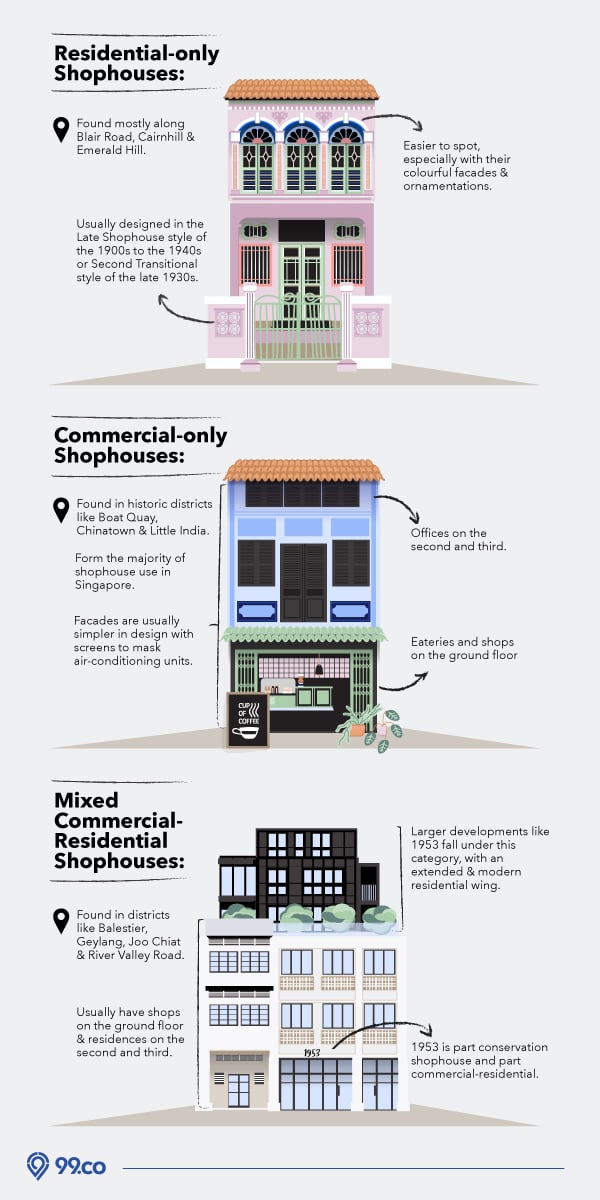
Enduring appeal
Beyond their functional versatility, shophouses possess an enduring charm that transcends their varied uses. These historic buildings serve as venues for everything from national museums and art galleries to modern offices and trendy cafes.
Take, for example, the transformation of the Joo Chiat neighbourhood, once associated with seedy brothels and dilapidated shophouses. Today, it stands as one of Singapore’s most vibrant and Instagram-worthy districts.
During weekends, throngs of young people and tourists flock to its vibrant, candy-coloured shophouse-lined streets, capturing selfies and soaking in the lively atmosphere.
Enhanced foot traffic
In addition to their scarcity, the high demand and premium pricing of shophouses can be attributed to the natural foot traffic they attract owing to their prime locations. This organic foot traffic ensures a steady stream of walk-in customers – both foreigners and locals alike – providing a consistent customer base for those in business in the area.
For instance, areas like Joo Chiat and Haji Lane are renowned for attracting locals with substantial purchasing power, adding to the appeal of shophouses.
Lim believes that the sustained growth of conservation shophouses is fueled by their ability to attract a diverse pool of local patrons – especially those with higher spending power.
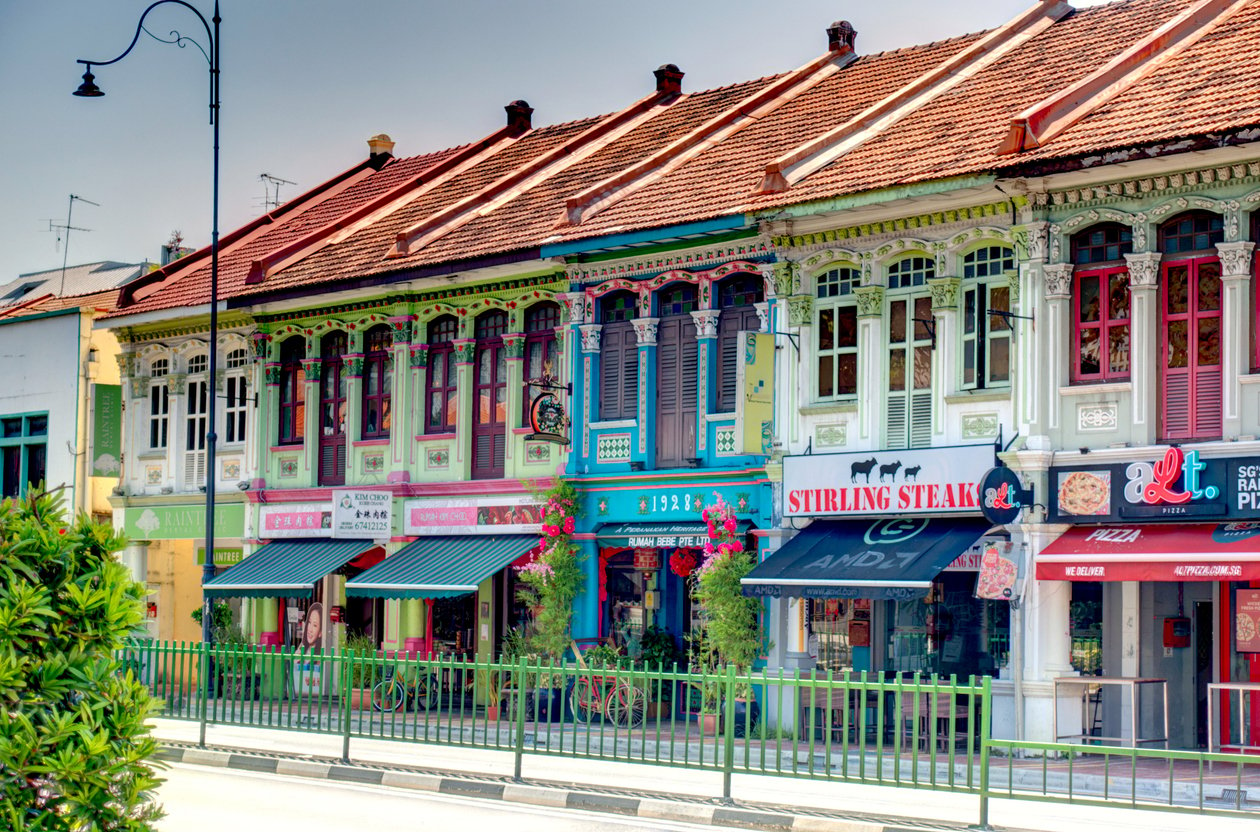
Boost for business ventures
Investing in shophouses offers an immediate advantage for businesses by addressing concerns about attracting crowds. Given the prime locations of these properties, HNWIs need not worry about drawing customers.
Additionally, the outdoor trend amplified by the COVID-19 pandemic has further heightened the appeal of shophouses. Unlike traditional shopping malls, which are losing favour, shophouses capitalise on their unique charm and specialty offerings, making them preferred destinations for consumers.
Key asset for Michelin-starred F&B ventures
Having transacted a number of Michelin-starred restaurant tenants, Lim also sheds light on a crucial prerequisite for these restaurants: its prime locations.
By citing iconic destinations like Marina Bay Sands and ION Orchard, Lim reveals that, with its sought-after location, conservation shophouses also offer an inherent advantage to F&B ventures aiming for Michelin recognition.
Tax exemptions for foreign buyers
As previously mentioned, one of the main draws for HNWIs towards conservation shophouses is their exemption from ABSD and Seller’s Stamp Duty (SSD), typically applicable to residential or mixed residential-commercial properties. Foreign buyers acquiring conservation shophouses in Singapore benefit from a waiver of the 60% ABSD from recent cooling measures.
Lim elaborates that certain zoning categories, such as dark blue zoning, provide more favourable conditions for foreign buyers due to fewer restrictions compared to categories like pink or light blue zoning.
It’s worth noting that areas designated as Peranakan places are fully commercial, whereas residential zones like Blair Road, Everton Road, and Emerald Hill have restrictions on foreign ownership.
Hedge against inflation
These properties, often fully paid for by both local and foreign buyers, provide stability amid market fluctuations due to their niche status. Unlike mass-market options, they exhibit resilience in uncertain market conditions.
As such, rather than opting for costly construction projects, many HNWIs often prefer investing in conservation shophouses as tangible assets that offer faster capital gains compared to traditional banking investments.
With demand projected to increase steadily and a limited supply available, conservation shophouses represent a secure investment opportunity for investors seeking long-term value and stability in their portfolios.
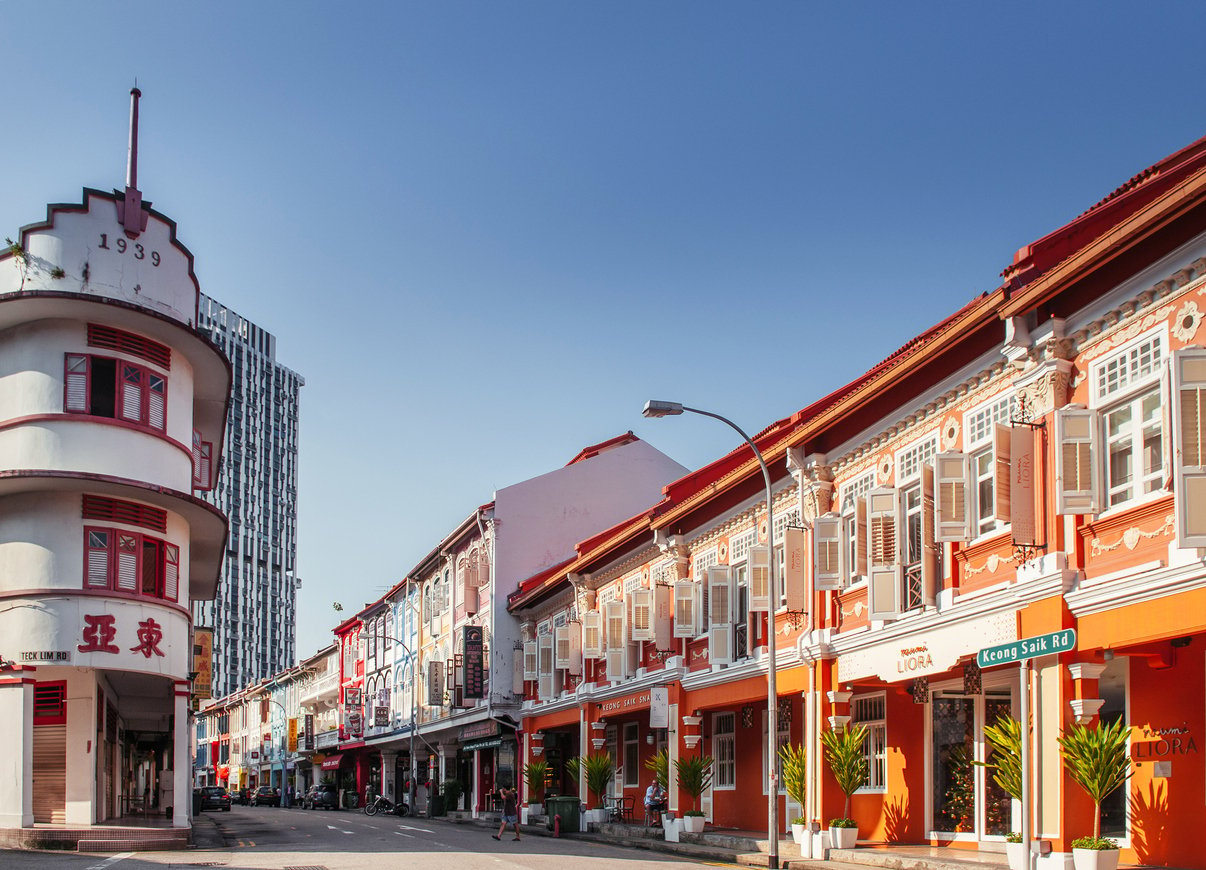
Better rent returns
Among non-residential properties like industrial units and offices, conservation shophouses offer the most favourable rental returns.
In Q1 2024, rentals for shophouses continued to exhibit resilience, buoyed by strong tourist influx and tourism revenue. Occupancy rates for them also remained high, driven by demand, especially in sought-after tourist areas.
As a matter of fact, despite a slight decline in the number of rental contracts signed compared to the previous year, the shophouse rental market still witnessed S$9.6 million worth of contracts inked during the quarter.
Therefore, from a commercial standpoint, conservation shophouses present a broader array of opportunities for rental income compared to other property types.
A unique factor like no other
Much like a thumbprint – no two conservation shophouses are alike. Lim notes, “It’s nearly impossible to find identical shophouses in Singapore and this adds to their allure”.
With diverse histories, heritage, and individual charm, these properties offer an unparalleled selling point. “There’s a deep sense of pride in facilitating transactions for these conservation shophouses. I feel truly honoured to play a part in preserving their heritage,” shares Lim.
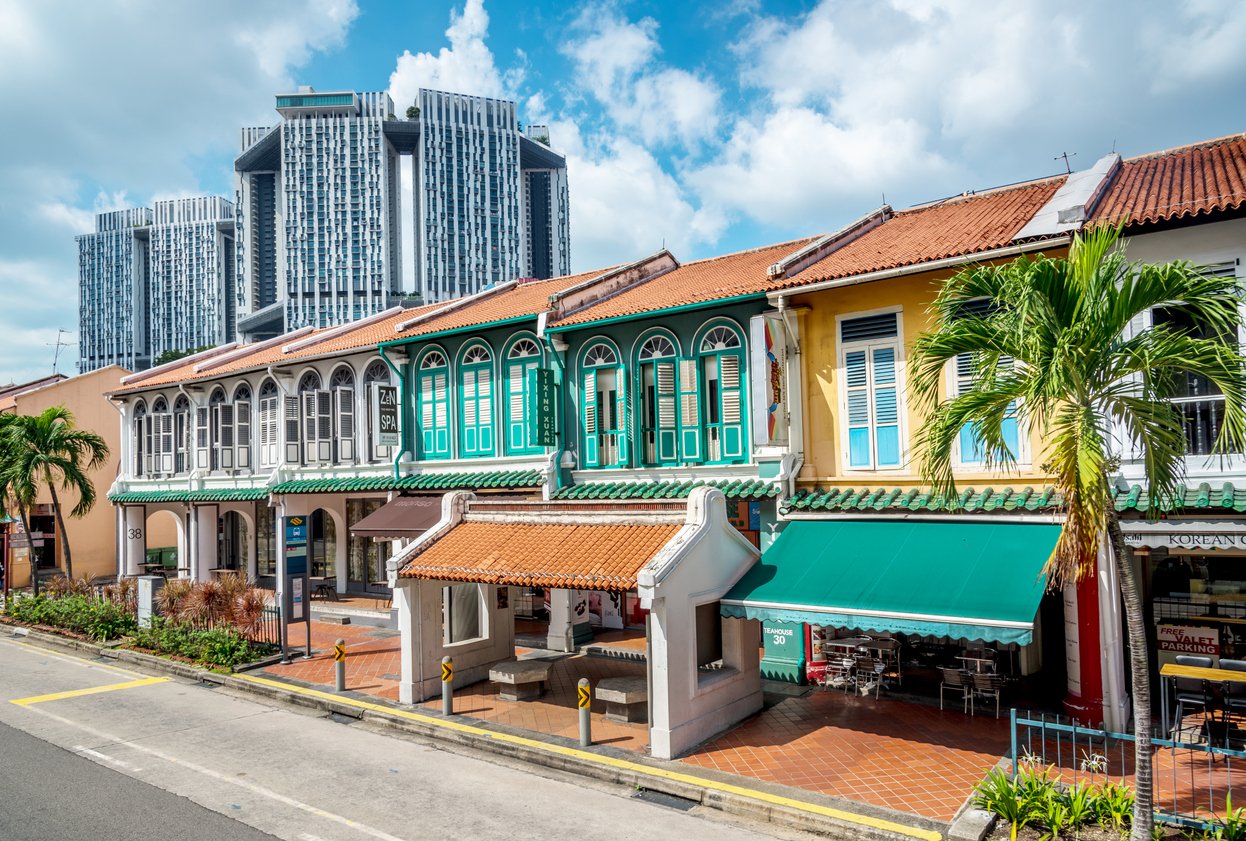
Why does Singapore appeal to global High-Net-Worth Individuals?
Amidst economic downturns, Singapore’s stable economy and robust currency make it an ideal destination for high-net-worth individuals seeking investment opportunities.
The influx of foreign companies into Singapore contributes to the stability of its currency, which has appreciated significantly over the past two years against various currencies, ranging from 3% to 20%.
For instance, Lim highlighted a case where a Japanese investor sold a property in Singapore at a near loss but profited from favourable currency exchange rates.
Consequently, with its strategic location and vibrant real estate market, Singapore remains a top choice for foreign investors looking to capitalise on the city-state’s dynamic landscape.
What does the future hold for the conservative shophouse market?
While the money laundering incident initially raised apprehensions about its impact on the conservation shophouse market, its actual influence has been minimal, Lim shares.
In fact, a couple of months ago, news broke of Chinese billionaire Jack Ma’s wife, Zhang Ying, acquiring three adjoining shophouses near Chinatown area for approximately US$37.1 million. These properties, located at 70, 71, and 72 Duxton Road.
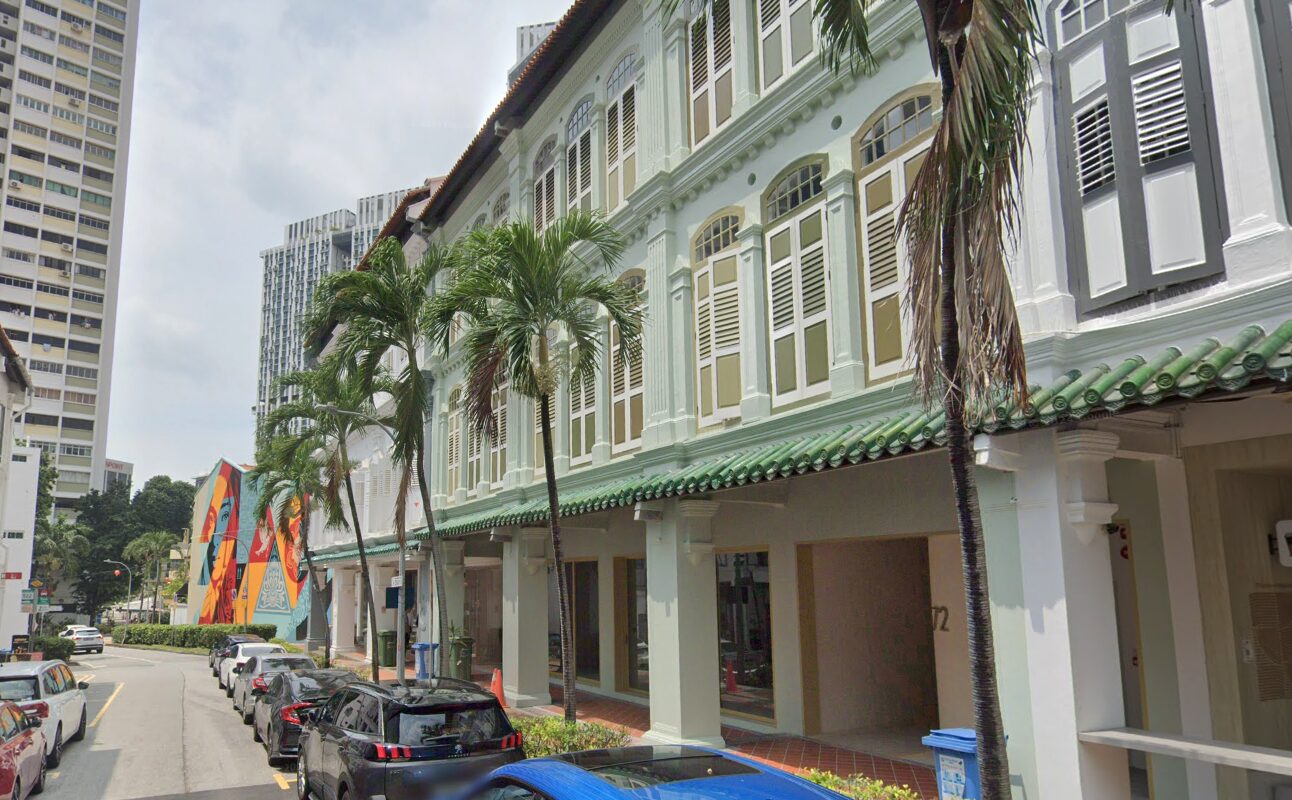
“The market for shophouses remains robust and resilient, demonstrating continued strength and vitality despite the temporary concerns”, says Lim.
Looking ahead to potential market drivers in 2024, several factors could play a significant role, including the expected economic improvement in Singapore in the latter half of the year, the recovery of tourism, and the increased global exposure of Singapore through hosting prestigious events. Additionally, the implementation of a 30-day visa-free arrangement between Singapore and China could also streamline property viewings for potential foreign buyers.
Consequently, this might result in an influx of foreign buyers and investors who may redirect their investment focus towards commercial shophouses, which are exempt from property taxes and ABSD.
As such, Lim predicts that these factors, coupled with continued interest from both local and foreign parties, will contribute to the robust and highly coveted nature of the conservation shophouse market in the next 24 months.
Considering its evident demand, why is the shophouse market not flooded with agents?
The intricacies involved in conservation shophouse transactions, including navigating multiple authorities and regulations, pose challenges for many agents.
However, Lim’s extensive experience and expertise in this niche market have allowed him to overcome these obstacles with ease.
His track record speaks volumes, solidifying his reputation as a trusted authority in Singapore’s conservation shophouse scene.
This article was contributed by Jeremy Lim. You may reach out to him at +65 8858 1212.
Jeremy Lim
Jeremy Lim is Group Division Director at Huttons Asia and veteran with numerous years of experience in the industry and is a four times million-dollar sales producer.
He is one of a handful of agents in Singapore who specialises in prime shophouse transactions.His experience and success have led him to clinch Huttons “Number 1 Producer” for 2021 and 2023.

The post A conservation shophouse expert on its appeal and demand in Singapore appeared first on .

